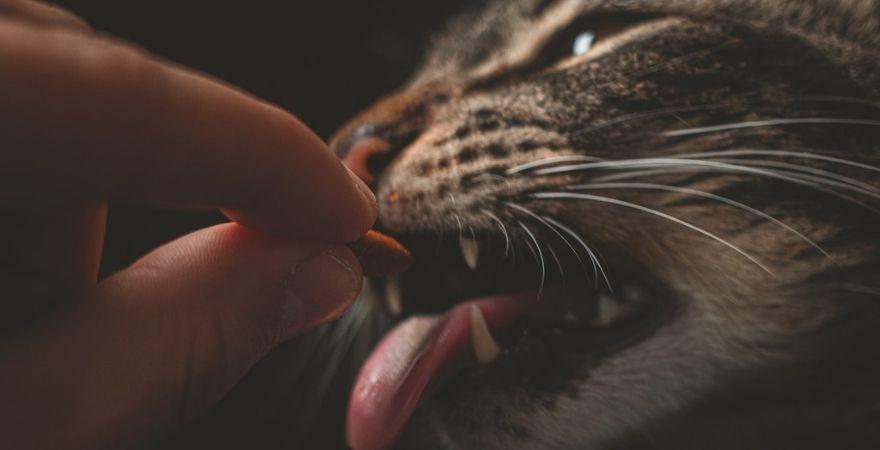Since when is getting along this hard?!
Sigh. They’re at it again. You’ve lost count how many times your kitties have been cat-fighting over the last few weeks, and your patience is running thin. Before you do anything drastic (we do NOT recommend forcing them to wear a get-along shirt together *shudder*), here are a few reasons why your cats can’t stand each other, and how you can bring the peace back into your home.

Photo by Mohd Fakhrul Anwar Shaipuddin via Flickr.
Lack of Social Skills
Socialization is the process of getting a cat comfortable with other people, places, pets, and activities. Ideally, kitty would be socializing in their “sensitive” years, between two and seven weeks old. Adult cats that miss out on this kind of training don’t know how to communicate properly with their own species, which leads to extreme responses if another cat gets in their space.
Introduce the new kitty to your place, and their new pet sibling S-L-O-W-L-Y. Strangers don’t particularly enjoy being thrown in a room together and told to have fun (apparently it’s called a “party”), and neither do cats. Your established cat is probably feeling threatened with the newbie being around, and your newbie is stressing out from the sudden change in environment.
Keep everyone separate at first, and make sure everyone has their own litter box, water bowl, scratching post, kitty bed and hiding spot (if you have the space, a “kitty room” is perfect for your newest fur baby). Little by little you can introduce everyone by letting your established cat get a look at the new family member first, and leave the door open so they can retreat back to their own space. Newbie eyeing a spot you know definitely belongs to resident kitty? Help newbie find their own spot by setting a towel down at the un-claimed location with their scent on it.
Photo by Anssi Koskinen via Flickr.
Competition for Resources
If you’re thinking of turning your place into a kitty haven, one thing to keep in mind is that one (or more) cat will block the others from accessing the water bowl, or other important resources like the litter box or food bowl. Let everyone know there’s plenty to go around by getting a separate item for each cat.
Nothing keeps the peace longer than knowing you have your own stuff!
Medical Problems
All of a sudden your pretty chill cat turned into a flat-out ice kitty, snapping at you and their pet siblings every time someone comes too close. Cats prefer to tough it out if they’re not 100% — especially if they’re in pain. It might be just a bad mood, but different medical conditions like hyperthyroidism, dental disease, osteoarthritis, and cognitive dysfunction have increased aggression as a symptom.
If the flaring temper doesn’t seem to be getting any better, it might be a good idea to schedule a checkup with the vet to make sure nothing more serious is going on.
Sidenote: if kitty does happen to be diagnosed with hyperthyroidism, we do have the Scruffy Paws Thyroid-Soothe Drops available for you to check out.
Keeping their Inner Predator at Bay
As much as we’re suggesting ways you can tone down kitty’s aggression towards their new housemate, it is important to note that certain tendencies come naturally to kitty. A great example is that cats are born hunters, and nothing gets their blood pumping more than a favorite toy to pounce on! Toys that rev their hunting instincts — wand toys, toys that run around the house, treat-dispensing toys — are a great way for kitty to get that energy out their system.
Also, find out what exactly is bringing kitty’s aggression out in the first place. For example, if they happen to be an indoor cat hanging out by their favorite window, and see a stray animal staring right back at them, they’ll get agitated because they want to defend their territory — but they’re stuck inside. The next best thing? They’ll pick a fight with their sibling.
Try keeping the curtains drawn if the outside world is too big a trigger, or finding out what could be stressing them out and managing the problem to keep everyone calm.

Photo by Tambako The Jaguar via Flickr.
Space, and (a lot) more Space
Sometimes we all NEED a break. Give the gift of space for your kitties by keeping them separate for a bit, or a while, so they can stop associating negative experiences with each other — which creates more negative experiences.
Punishment
Disciplining fighting cats might look like you’re doing the right thing as a pet parent, but as cats tend to associate experiences with people or pet siblings, punishment — clapping, spraying water, rough handling — teaches one cat to dislike the other because they think they’re the reason they get in trouble. That negative association creates more tension, more fighting, and more of the vicious cycle repeating itself.
Without getting involved directly, toss an item like a pillow within eyeshot of the scuffle — the sudden action will distract them and they’ll split up. The key is making sure neither of them see you do it!
Finding Harmony
No one likes seeing their fur babies not get along.
But adjusting of any kind takes time, patience, and reassuring one cat they’re still loved, while letting the other know their new home is safe and welcoming.

Photo by zaimoku_woodpile via Flickr.

Stephanie Pollard
Writer. Pet Enthusiast. Ambivert.




2 comments
Thank you for valuable advice.
Thank you! I have sprayed water to break up the two cats, so I’ll stop that. 💜